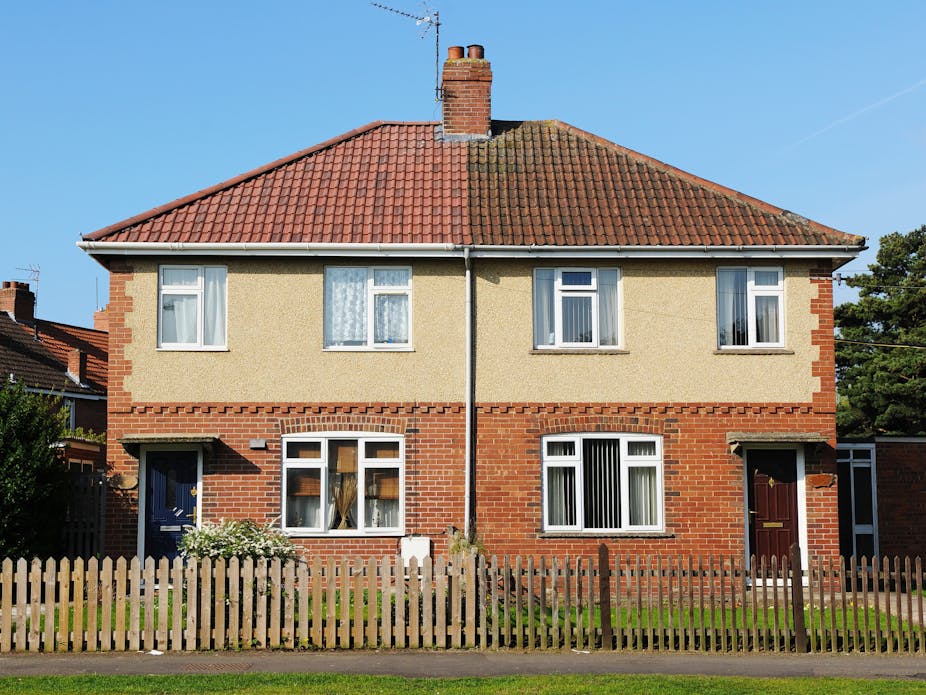Britain has a housing crisis, not just in terms of a shortage of homes and sky-high prices, but in terms of the poor state of existing homes. Four in ten British homes don’t meet the basic criteria to secure occupants’ well-being, according to a recent survey.
Researchers have looked into individual measures to improve housing and their effects on the people living in them. In New Zealand, for example – which has a similar climate to the UK – reduced asthma wheeze and fewer visits to the doctor were reported by people who had insulation improvements to their homes. In another New Zealand study, low-income tenants whose homes had fall-reduction modifications, led to reduced falls as intended.
In the UK, though specific initiatives like these have been assessed, no one has looked at the effect that whole-home improvement can have on health, until now. Our latest research is the first to investigate how improvement of a whole home can benefit health – specifically using hospital admissions as a measure.
Whole home improvement
For our study, we worked with the residents living in 9,256 council properties in Carmarthenshire, south Wales, between 2009 and 2014. Of these, 8,558 homes underwent at least one improvement to meet the Welsh Housing Quality Standard. This included new heating and electrical systems, added wall and loft insulation, new kitchens and bathrooms, windows and doors, or garden paths.
We linked monthly hospital admission data – from an anonymised databank – to information provided by the council on the month each home received improvements. Using this, we then compared the number of hospital admissions for tenants who lived in houses that had improvements with those whose homes that had not yet been improved (almost all were improved by 2016). What we found was a substantial decrease in the number of hospital admissions for those living in improved homes meeting the quality standard.

We first looked at the health of tenants aged 60 years and over. For this group, there was a decrease of up to 39% in emergency admissions for cardiovascular and respiratory illnesses, as well as fall and burn injuries. We also found that there were reductions in hospital admissions (25-39%) for tenants in this age group living in homes that had new electrical systems, new windows and doors, added wall insulation, and had their garden paths made safe.
Also, there were smaller reductions (2-9%) in hospital admissions that were associated with installing new heating systems, loft insulation, kitchens and bathrooms.
We found similar results when we looked at the health of tenants of all ages with large reductions of 19-34% for new electrical systems, new windows and doors, and improved garden paths, smaller reductions for improved heating systems and bathrooms (1-8%), but very small increases for new kitchens and added loft insulation (1-2%).
Previous studies have shown that damp homes have more allergens, and other causes of respiratory ill health. We found that improvements to electrical systems – including fitting extractor fans in kitchens and bathrooms – contributed to the largest reduction (57%) in respiratory related admissions. This leads us to believe the removal of damp from homes using extractor fans was probably an important mechanism behind many of the reduced admissions. And that damp removal improvements are important as part of a whole home intervention. Currently, they are regarded to be of secondary importance, and related to comfort not health.
Bettering the nation’s health
We mainly looked into costly hospital admissions for this study, but in the long term their reduction is likely to be only the tip of the iceberg in terms of saving NHS money and resources. There may also be an impact on GPs, outpatients and social care in the community.
We recommend that Welsh housing quality standards should be updated to include improvements to remove damp as a matter of primary health importance. Although housing is devolved to the Welsh government, and so different rules apply nationally, housing quality needs to be improved across the UK. There are similar standards for social housing across the UK, including The Scottish housing quality standard and decent homes in England.
But it is not just people in social homes who could benefit from health improvements if their homes are upgraded, so we also recommend that private rented homes are subject to these standards.
It may be that the best way to do this is to transfer budgets from healthcare to housing, because these kinds of improvements can be seen as a form of preventative medicine. As part of the Wellbeing for Future Generations (Wales) Act 2015, this should be happening in Wales, and there is nothing to stop it being considered nationwide too.

